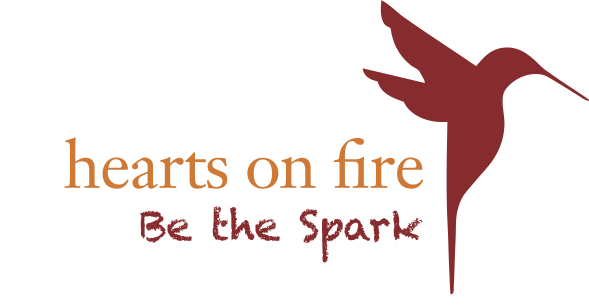VISIONARY OF THE MONTH
Nicholas Carlisle | No Bully
Nicholas Carlisle
The Good Fight
At 12 years old, Nicholas Carlisle was off to high school in London, younger, smaller and less well off than many of his classmates. It was a combination that made him the perfect target for bullies.
“For four years a group of boys made my life hell,” Nicholas recalls. “They called me the runt. Between classes a group punched me in the belly so hard I couldn’t breathe. They would take my possessions and scatter them around the school. The worst part was I had no friends and no one to talk to.”
For Nicholas, the hostility was not just terrifying, it was baffling--a traumatic shift from the way he had been raised.
“My parents were very kind, respectful and loving. My father had been a candidate for the Liberal Party in Britain and stood for election so I grew up in a house that was very conscious about rights and people and a vision of caring for our brothers and sisters on the margins. It seemed to me that it was a crazy world that they would be treating anyone like this.”
Nicholas eventually broke down and told his parents what he was enduring at school. They, in turn, complained to the administration, which warned his classmates that they would be punished if the bullying continued. Not only did it continue, Nicholas says, it got ten times worse. Despite that, he was able to get through those troubled years without becoming bitter and cynical.
“I hung onto this realization that people are so much greater than this.”
Nicholas coaching educators on how to be Champions for bully-free schools
After leaving high school at 16, Nicholas got a job teaching in Zimbabwe, which had just gone through a violent struggle for independence. Seeing what the local people had survived gave him a new perspective on his own experience of being marginalized and galvanized his inner resources.
“I got to see there is a way to overcome the aggression that I’d been through at a personal level. Zimbabwe created in me a deep social consciousness and I came back from there committed to social change.”
In the years that followed, Nicholas made good on that commitment, joining marches against South African apartheid and heading up Oxford University’s chapter of Amnesty International. After college, he trained as a human rights lawyer and chaired the non-profit section of Amnesty International in Britain. His next move was to California, where he worked as a child and family psychotherapist while doing research on a subject he understood intimately…school bullying.
By 2003, all of the roads he had taken in his life were converging, leading him to a destination that would become his passion and his purpose.
Creating a generation of Peaceful Warriors at the Golden State Warriors
Every year approximately one-third of adolescents worldwide are the target of bullying. Nearly a quarter of all American students report being bullied in school or online.
In 2003, to help eradicate the problem that had so deeply affected his own childhood, Nicholas founded No Bully. Six years later, it was formalized as a nonprofit, bringing together a collaborative team of educators, psychologists and lawyers with the goal of “building a kinder, more compassionate world through ending the crisis of bullying, harassment, and violence in schools and online.”
“We really put our hearts and souls into developing a solution that works in schools,” says Nicholas. We empower students in a different way.”
Nicholas believes the old style of dealing with bullying--using punishment to change behavior--is just not effective. As happened in his own case, if you threaten bullies with punishment, you make the situation worse for the target.
“Students will retaliate if they think one of them snitched. Instead, we bring students together; we speak to their hearts and we take punishment out of the equation. If you know how to do this intervention, you can make space for the empathy that is our birthright.”
When severe or persistent bullying occurs, teachers facilitate Solution Teams, where the target’s peer group and the bullying students come together to bring the bullying to an end. Students are told ‘You have the power to solve a painful situation for one of your peers, and to feel what it’s like to be them.‘
No Bully has found that given proper guidance and opportunity, 98 percent of kids demonstrate empathy.
“I think what’s surprising is that nearly all kids want to end this,” Nicholas says. “They don’t like this behavior. Because of my own experience, I went in with a jaundiced view of how kids, especially adolescents, would react. It was a wake-up call to realize how caring most kids are.“
No Bully works with students from kindergarten through high school, in a year-long program built around leadership coaching, teacher training, and parent workshops.
Since its founding, it has achieved a 90% success rate in eliminating bullying in schools and has now partnered with over 250 schools serving 140,000 students.
No Bully Peace Summit at Carlile Elementary School, Pueblo CO
In addition to confronting the problems of physical and verbal bullying, No Bully is focusing on the special dangers of cyberbullying, which is a weapon most often used by girls.
“There is an invidious intensity to it because once something goes online it attracts a following, like a reality TV show of its own, spread in a very intense way. Enormous shame is created by that and the shame factor is often even greater than the pain of face-to-face bullying.”
Even more destructive is the fact that, what goes online stays online. The shame and humiliation for the victim can last a lifetime.
No Bully hopes its Power of Zero campaign, with its focus on young children, will help raise a new generation of digital citizens who use their power well.
“Children are getting online from birth but not being given skills to deal with that space. They don’t understand the reality that there are people at the other end. You have to start early so we can raise a generation that knows how to use its power.”
Decades after his own experience, Nicholas is getting to experience redemption. What moves him most is the opportunity to prevent kids from having to endure what so many of us experienced at school.
Nicholas Carlisle at TEDx Barcelona “Lets talk about Bullying”
Nicholas’s research with Professor Eric Rofes on the effects of school bullying was published in 2007 in the Journal of Traumatology. He was recognized by Toms as a Game Changer, and by Ashoka as a Champion of Children’s Wellbeing. In addition to giving a TEDx talk on bullying in 2015, he continues to be a sought after guest speaker and expert on school bullying for television and radio programs and conferences around the world.
Watch
Take Action
To find out how No Bully can help you end bullying at your school, go to www.nobully.org.






